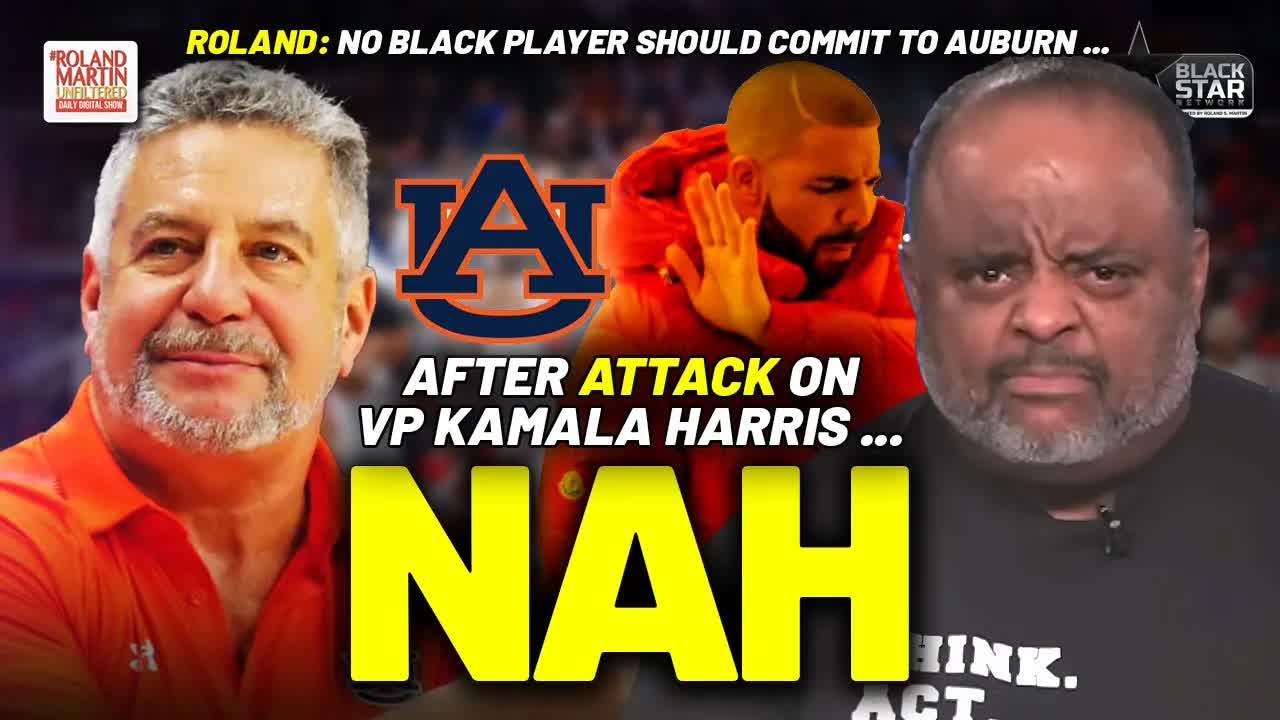In the world of college sports, where coaching often intertwines with politics, Bruce Pearl, the head basketball coach at Auburn University, has stirred the pot yet again.
Known for his polarizing presence in the realm of athletics, Pearl recently took to Twitter to respond to Arkansas Senator Tom Cotton’s remarks, igniting a firestorm of backlash from various quarters.
Pearl’s tweet expressed gratitude towards Cotton for highlighting what he called “socialist, woke, progressive beliefs.”
This statement comes from a coach who leads a team predominantly made up of Black athletes.
The irony hasn’t gone unnoticed; many are questioning how someone who profits immensely from the talents of Black players can make such incendiary comments.
Imagine being a parent of a young Black athlete considering Auburn as a potential school.
Would you feel comfortable with your child playing for a coach who publicly disparages prominent figures like Vice President Kamala Harris?
For many, the answer is a resounding no.
The implications of Pearl’s words resonate deeply, raising serious concerns about the environment he fosters for his players.
Critics have pointed out that Pearl’s history complicates matters further.
He’s not just known for his coaching prowess but also for past indiscretions, including violations while at Tennessee and Auburn.
His reputation as a “notorious cheat” casts a long shadow over his current position, leading many to wonder about his integrity both on and off the court.
The conversation surrounding Pearl isn’t just about one tweet; it’s about a larger pattern of behavior that reflects a troubling attitude towards race and inclusivity.
If Black parents are considering Auburn for their children, they might think twice after seeing this latest display of insensitivity.
There are plenty of other SEC schools that would welcome talented players without the baggage.
Moreover, the stakes are high.
If Auburn’s basketball program continues to struggle, Pearl could find himself out of a job.
The harsh reality of college sports is that performance often dictates a coach’s longevity.
Should he fail to deliver results, his controversial statements could come back to haunt him.
Athletes and their families are now faced with a choice.
Do they align themselves with a program under a coach who openly expresses disdain for progressive values?
Or do they seek opportunities elsewhere, where they might feel more respected and valued?
The landscape of college recruitment is shifting, and players are beginning to wield more power in their decisions.
Public figures like Charles Barkley, an Auburn alum, have been vocal about their disapproval of political figures like Donald Trump.
It raises questions about what kind of conversations are happening behind closed doors at Auburn.
If Pearl feels free to voice such opinions publicly, what might he say in private?
The movement for accountability in sports is gaining traction.
Young athletes are becoming increasingly aware of the impact of their choices, not just on their careers but on the broader cultural narrative.
They have the power to influence change, and opting out of programs that don’t align with their values is a significant step.
As the debate continues, it’s crucial to emphasize the importance of Black representation in media and sports.
The need for authentic voices that reflect the experiences and concerns of Black communities cannot be overstated.
Supporting Black-owned media is essential to amplify these narratives and ensure they are heard.
In a time when every dollar counts, there’s a call to action for those who believe in this cause.
Contributions to platforms that prioritize Black stories can help shift the narrative and create spaces for genuine representation.
The fight for visibility and respect is ongoing, and every effort counts.
As we navigate these complex conversations, it’s vital to recognize the role of athletes as influencers beyond the court.
They are not just players; they are voices of change, capable of challenging the status quo and advocating for a more inclusive future in sports and society at large.































